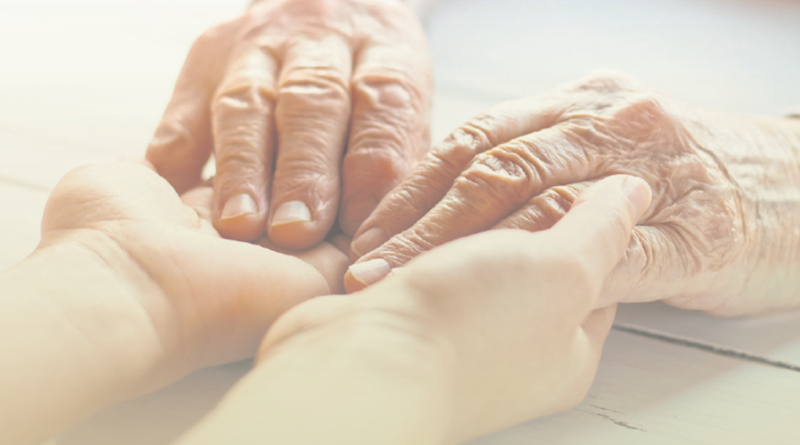BANGKOK: A society of seniors requires special treatment
Greater dependence on mobile technology is not the only factor that is transforming Thai people’s lives, as their age too, will bring about big changes.
In the next two years, the country will become an “aged society”, in which one in every five people will be 60 years old, or more. Their numbers will grow further, skewing society’s demographics if the current birth rate continues to increase at a glacial pace.
It is expected that by 2035, the elderly will make up 30% of the total population.
Those who are active at work will inevitably slow down when they reach retirement age. This will prompt a new trend in the society — a shift towards a new environment that can better cater to and serve the elderly.
It does not necessarily mean society will need ultra-smart technologies and amenities, but they must at least meet the specific needs of this age group.–THIS SPACE BELOW IS RESERVE FOR YOUR ADVERTISEMENT –
“I’m confident Thailand is ready for a change and may even become a model for Asean countries,” said the president of the Thai Elderly Promotion and Health Care Association, Khanat Krutkul.
This may indeed be possible if public facilities are universally designed — made to accommodate the needs of all members of society, including the elderly.
“An increasing number of senior centres and nursing homes are utilising technology to improve their services,” Dr Khanat said.
Some centres allow family members to remotely monitor their relatives in real time, allowing them to reach out to medical staff in case of an emergency, he explained.
Increasing demand for such services will play a major role in developing elderly-friendly environments.
“People are beginning to see such services as a necessity, as they help ensure safety and comfort,” Dr Khanat said, adding most families cannot trust unskilled and inexperienced caretakers, as medical care is a crucial part of caring for the elderly.–THIS SPACE BELOW IS RESERVE FOR YOUR ADVERTISEMENT –
Public awareness of the need for better care for Thailand’s senior citizens has been on the rise since the nation became an ageing society about 14 years ago, when 60-year-olds accounted for only one-tenth of the total population.
“Now, many people have more understanding of elderly care and its related businesses,” Dr Khanat said.
As a result, a range of new products, such as clean and organic food for the elderly, as well as services geared for senior citizens both in and outside hospitals, will soon hit the market, he said.–THIS SPACE BELOW IS RESERVE FOR YOUR ADVERTISEMENT –
Last year, Thammasat University launched a two-day “elderly classroom” programme to boost both the health of retirees. They were taught about the importance of proper nutrition, physical therapy and dental care. Attendees were also introduced to modern technology and even simple household skills, such as cooking.
Recently, Bangkok governor Aswin Kwanmuang announced the first city-run “elderly hospital” will open later this year in Bang Khunthian, to help treat senior citizens.
The hospital will also serve as a training centre for those who want to become professional
caretakers for the elderly.–THIS SPACE BELOW IS RESERVE FOR YOUR ADVERTISEMENT –
According to the Department of Provincial Administration, the capital was ranked first in terms of the total number of senior citizens, which stood at 930,000 in 2016.
Trailing behind Bangkok are Nakhon Ratchasima (400,000), Chiang Mai (280,000), Khon Kaen (270,000) and Nakhon Si Thammarat (240,000).
However, despite efforts to prepare Thailand as it transitions into an aged society, experts are still calling on the government to do more, as existing facilities are not enough to accommodate the growing number of senior citizens.
Sumet Ongkittikul, chief of the Thailand Development Research Institute’s transport and logistics policy research section, said Thai cities need more public parks, museums, libraries, social and cultural activities to keep old people, together with youngsters, physically and mentally fit.
“Taking part in outdoor activities is good for mental health, but in Bangkok, only a quarter of the elderly people can relax in public parks within walking distance of their homes,” he said, referring to a recent study.
Apart from that, more housing developments for seniors are being introduced.
Associate professor Trirat Jarutach, head of the Centre of Excellence in Universal Design, Chulalongkorn University, said the number of senior housing projects developed by property firms is on the rise.
“Many Thais who will become seniors in the near future are preparing themselves.–THIS SPACE BELOW IS RESERVE FOR YOUR ADVERTISEMENT –
More are visiting senior-housing projects or projects with senior-friendly facilities to explore and buy a unit for when they get older,” he says.
According to the Situation of the Thai Elderly Report 2017 by the Foundation of Thai Gerontology Research and Development Institute, Thailand in 2021 will become a “complete-aged society,” when the proportion of people aged 60 years old or older reaches 20% of the total population.
The report said a clear driving force for Thailand’s rapidly ageing population is the wave of the “million birth cohort” (Thais born between 1963 and 1983) who will age into an elderly population over the coming two decades.
Soon, Thailand will have 20 million seniors, with those in the most senior aged group (80 years or older) more than doubling, from 1.5 million in 2017 to 3.5 million in the coming 20 years.–THIS SPACE BELOW IS RESERVE FOR YOUR ADVERTISEMENT –
New senior-housing projects have opened in key cities including Greater Bangkok, Pattaya, Phuket and Chiang Mai in the past five years. All were developed by firms targeting active ageing or independent living senior people, both Thai and foreigners.
However, many Thai seniors prefer living in their existing homes than relocating to senior-housing projects, Assoc Prof Trirat says.
“Home renovations with senior-friendly equipment or facilities are added on is another trend,” he says.
“We found 72% of senior people in Thailand are living in homes where they have lived for over 40 years and have no plans to move.”WRITER: PENCHAN CHAROENSUTHIPAN AND KANANA KATHARANGSIPORN










